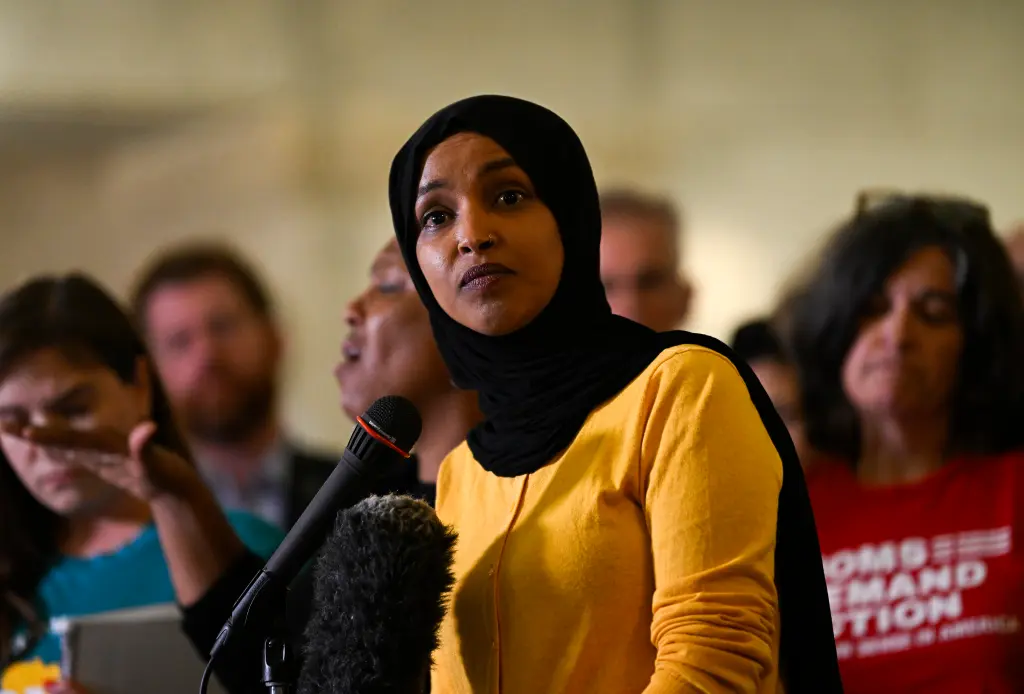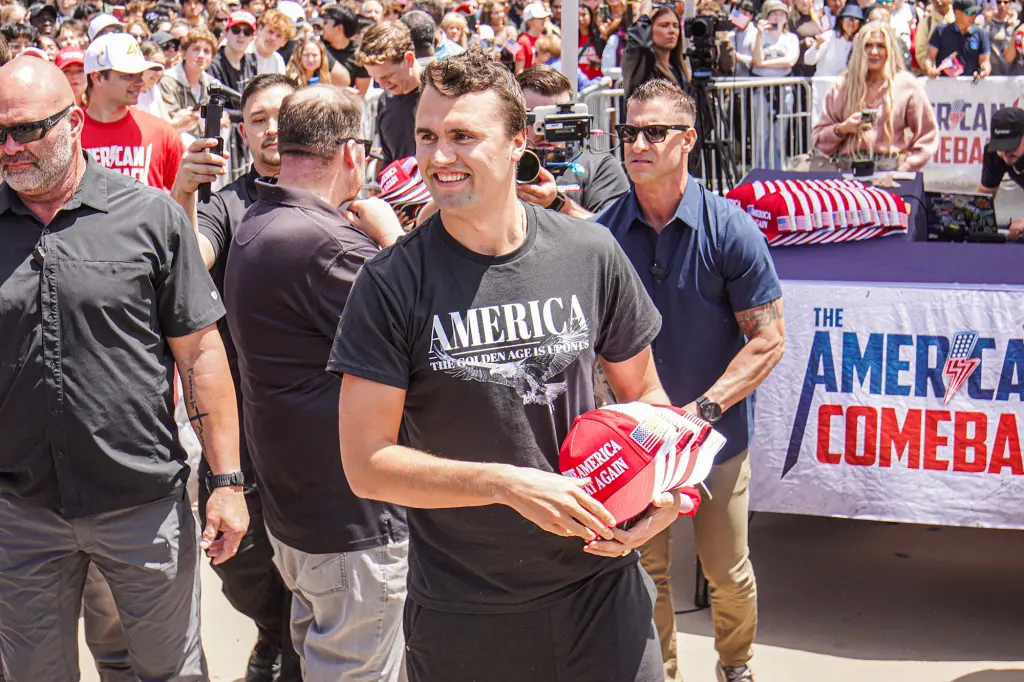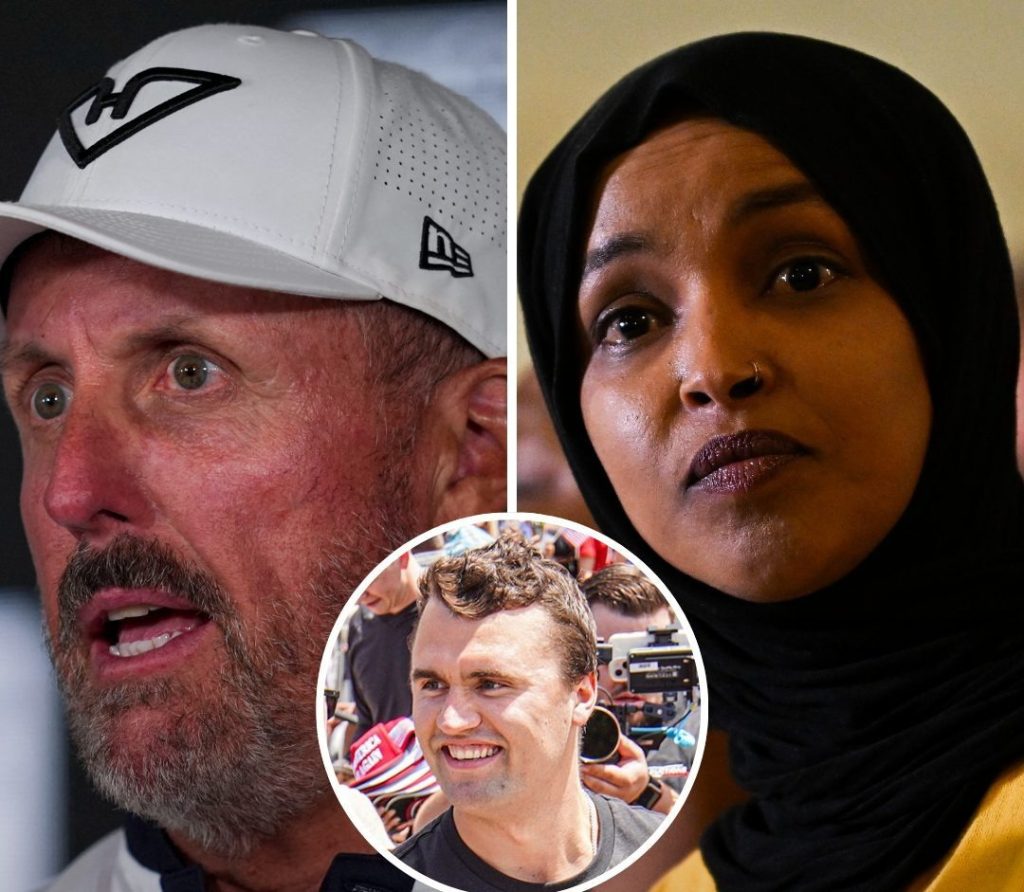Phil Mickelson Slams Ilhan Omar Over Charlie Kirk Remarks in Fiery Response That Shakes Political and Sports Worlds
Phil Mickelson has built his legacy on golf courses around the world, with decades of experience as one of the sport’s most recognizable faces. But this week, he made headlines not for a shot or a tournament, but for words that left people talking far beyond the sports pages. The 54-year-old golfer, often nicknamed “Lefty,” unloaded on Minnesota congresswoman Ilhan Omar in response to her comments about conservative activist Charlie Kirk, who was killed earlier this month. The exchange between two figures from entirely different arenas—professional golf and national politics—has now turned into one of the most unlikely clashes of the moment.

It started when Rep. Omar made remarks about Kirk that drew heavy criticism from conservatives. Though she has often been a lightning rod for controversy, her comments about Kirk’s activism and his legacy struck a nerve with many who considered him a friend, mentor, or ally. Among those voices was Mickelson, who rarely wades into political disputes but this time did so in blunt fashion. According to reports, Mickelson didn’t hold back, saying that Omar’s words were disrespectful and offensive in the wake of Kirk’s death. His reaction quickly made waves, both because of his own celebrity and because it marked one of the strongest condemnations of Omar to come from outside the political sphere.
The context adds to the intensity. Charlie Kirk, who founded Turning Point USA, had become a central figure in conservative activism, especially among younger audiences. His death shocked many in the movement, and emotions have been running high as tributes pour in from political leaders, public figures, and grassroots supporters. For Mickelson, the timing of Omar’s comments was especially troubling. In his view, they crossed a line at a moment when many were still grieving, and he felt compelled to say something.

The reaction to Mickelson’s words has been swift and divided. Supporters praised him for speaking out, saying it reflected his sense of loyalty to friends and his willingness to defend what he believed was right, regardless of the backlash. Critics, however, argued that his response was inflammatory and unnecessary, pulling him into a political fight that had little to do with his world of professional sports. Social media quickly became the battlefield, with hashtags featuring both Mickelson and Omar trending as people debated whether he had gone too far or simply said what others were thinking.
This isn’t the first time a sports figure has spoken out about politics, and it likely won’t be the last. In recent years, athletes from all kinds of backgrounds have found themselves stepping into political debates, either by choice or because their silence was seen as a statement in itself. Mickelson, though, has generally stayed away from such moments, preferring to let his clubs do the talking. That’s part of what makes this instance so striking: the sense that he had reached a personal breaking point and felt he could not stay quiet.

As with most controversies involving Omar, the fallout is unlikely to disappear quickly. She remains one of the most polarizing members of Congress, admired by some for her boldness and criticized by others for her sharp rhetoric. Mickelson’s comments have now added fuel to that fire, intertwining the world of sports with the world of politics in a way that ensures even more headlines in the days to come.
For fans of Mickelson, it is a reminder that their favorite golfer is also someone who holds strong opinions outside of golf. For observers of politics, it shows just how wide the ripples from Charlie Kirk’s death have spread, touching corners of American life that might otherwise seem far removed. And for everyone caught in the middle, it is yet another example of how the lines between culture, politics, and sports are increasingly impossible to separate.
Whether one agrees with Mickelson or not, his fiery response is proof that the emotions surrounding this moment are running higher than ever. His words may have been unexpected, but they reveal just how deeply Charlie Kirk’s legacy resonates—and how far the debate about it has traveled.


